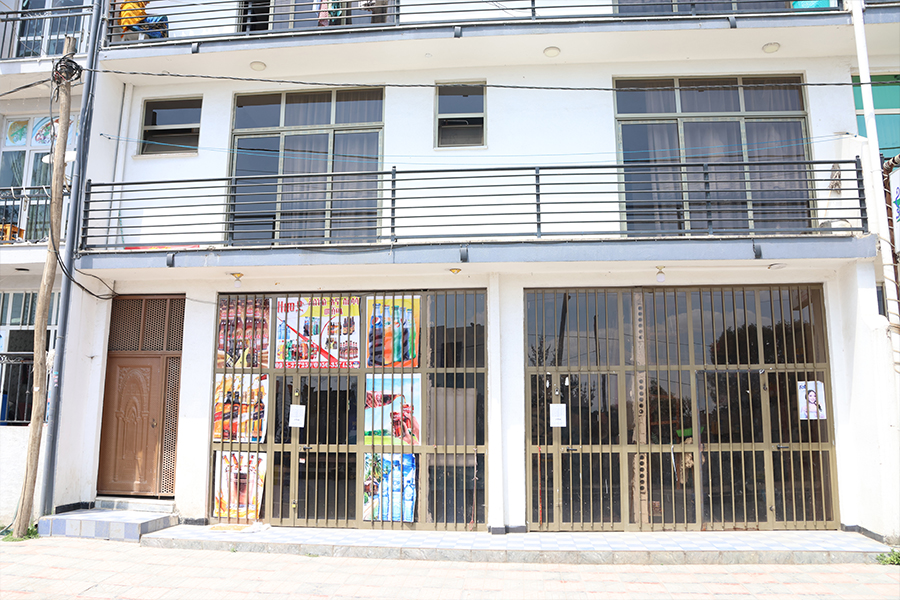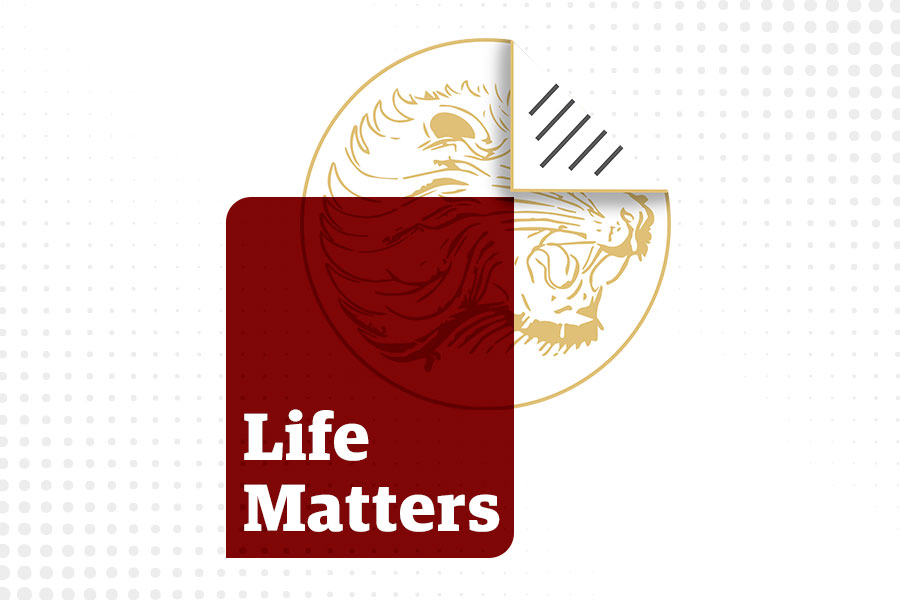
In-Picture | Mar 16,2024
Federal authorities approved submissions by the Addis Abeba University (AAU) administrators to reclaim financial and operational autonomy three years after they tabled their demands.
Under President Tassew Woldehanna (Prof.), the country’s oldest public university will break free from state control in the coming academic year. The authorities say the deterioration of educational standards justified their decision. The waning educational quality has grown more pronounced in recent years, evidenced by the underwhelming skilled workforce higher learning institutions produce.
University administrators argue the challenges in quality are many-faceted and embodied in academic, political, and financial constraints. The gradual loss of institutional autonomy and operational space is the main factor for the state of the AAU, concedes Wubayehu Mamo, communications advisor to the University’s President.
Experts believe the politicization of administrative and academic decisions and the challenge of recruiting and retaining academic staff and faculty have contributed to the deterioration. There was interference from officials in the opening of programmes, according to Tirussew Teferra (Prof.), an education expert.
Officials hope to see the autonomy improve quality.
“The institution will be able to set its standards before admitting students, including administering entrance exams,” said Samuel Kifle, a state minister for Education.
The University’s bid for autonomy has been in the making since 2019. That year, AAU’s highest administrative body set up a committee to probe the causes of poor quality. An eight-member committee chaired by DanielKitaw (Prof.), a lecturer at the University’s School of Mechanical & Industrial Engineering, was set up. It benchmarked Colorado State University in the United States, Makerere University (Uganda), and the University of Cape Town (South Africa) for its investigation.
Daniel’s committee submitted its findings and recommendations, advocating for autonomous status to the AAU governing board. A new administrative structure began to take shape in January 2020.
The State Minister says granting the University its operational autonomy is the only way to help it reclaim its former prestige.
From its inception in 1950 until the overthrow of Emperor Haile Selassie, the University remained a chartered institution granted autonomy by an Imperial decree. A bastion of a revolutionary student movement against the Imperial regime, it lost its autonomy after 1974. Its renowned President, Kassa Woldemariam, was one of the senior officials of the Imperial era murdered by the military leaders. The Hailesellasie I University, renamed Addis Abeba University, was placed under the Commission for Higher Education.
The early years of the Ethiopian People’s Revolutionary Democratic Front (EPRDF) regime offered new hope for the AAU. It was short-lived. Over 40 senior academic staff were dismissed in 1993 by the instruction of Tamrat Layne, the prime minister during the post-Derg transitional arrangement. The exodus came during the tenure of the late Duri Mohammed, who had served as the University’s president until 1995.
Andreas Eshete (Prof.) replaced Eshetu Woncheko (Prof) as the ninth president and ran the institution until 2011, before Admasu Tesgaye took over.
Tassew’s appointment differs from his predecessors. Before clinching the top position as the University’s 12th president, Tassew had to compete with 22 candidates. An economist trained at Wageningen University, Netherlands, his administration is dissatisfied with financial procedures, which it characterizes as too bureaucratic and unproductive. It usually takes the government a long process to release budgetary funding, says Wubayehu.
The AAU operates with a 1.7 billion Br federal budget for the next academic year. Revenues the University generated were channelled to the national treasury account. The University cannot use funds for anything other than itemized budgets, even under demanding circumstances, say its administrators. The autonomy it is granted offers its administrators to decide when and how to spend budgetary allocation.
“The government only oversees the appropriate spending of the funds,” said Samuel.
The University has 10 colleges, nine schools, and 11 institutes running 363 programmes. It enrols close to 48,000 students and retains 3,110 academic staff.
The authorities plan to replicate similar revitalization programmes in 10 public universities over the coming two years.
“We’ve notified all public universities to make the necessary preparations,” Samuel told Fortune.
The Addis Abeba and Adama Science & Technology universities are better positioned to take the opportunity. Both institutions have been admitting students through entrance exams since 2016.
“We’ve completed preparations to take the institution to the next level,” said Alemshet Gebrewold, communications director for the Addis Abeba Science & Technology University (AASTU).
Founded in 2011, AASTU enrols more than 8,700 undergraduate and postgraduate students under its nine applied sciences, technology, engineering and ICT-focused schools.
“The management knows how important it is to gain autonomy,” said Teshome Abdo (PhD), academic vice president at Adama Science & Technology University (ASTU). “Administering entrance exams has allowed the University to maintain educational quality.”
An assessment conducted by ASTU two years ago found that 82pc of its graduates were able to join the labour market.
“We want to capitalize on that,” said Teshome.
Established in 1993 as Nazareth Technical College, ASTU enrols over 10,000 students. Education authorities say they will pick the institutions that will be granted operational independence and flexibility after appraising performances against their submissions.
PUBLISHED ON
Aug 14,2022 [ VOL
23 , NO
1163]

In-Picture | Mar 16,2024

Editorial | Jul 17,2022

Fortune News | Sep 13,2025

Agenda | Oct 26,2025

Life Matters | Apr 22,2023

Dec 22 , 2024 . By TIZITA SHEWAFERAW
Charged with transforming colossal state-owned enterprises into modern and competitiv...

Aug 18 , 2024 . By AKSAH ITALO
Although predictable Yonas Zerihun's job in the ride-hailing service is not immune to...

Jul 28 , 2024 . By TIZITA SHEWAFERAW
Unhabitual, perhaps too many, Samuel Gebreyohannes, 38, used to occasionally enjoy a couple of beers at breakfast. However, he recently swit...

Jul 13 , 2024 . By AKSAH ITALO
Investors who rely on tractors, trucks, and field vehicles for commuting, transporting commodities, and f...

Nov 1 , 2025
The National Bank of Ethiopia (NBE) issued a statement two weeks ago that appeared to...

Oct 25 , 2025
The regulatory machinery is on overdrive. In only two years, no fewer than 35 new pro...

Oct 18 , 2025
The political establishment, notably the ruling party and its top brass, has become p...

Oct 11 , 2025
Ladislas Farago, a roving Associated Press (AP) correspondent, arrived in Ethiopia in...